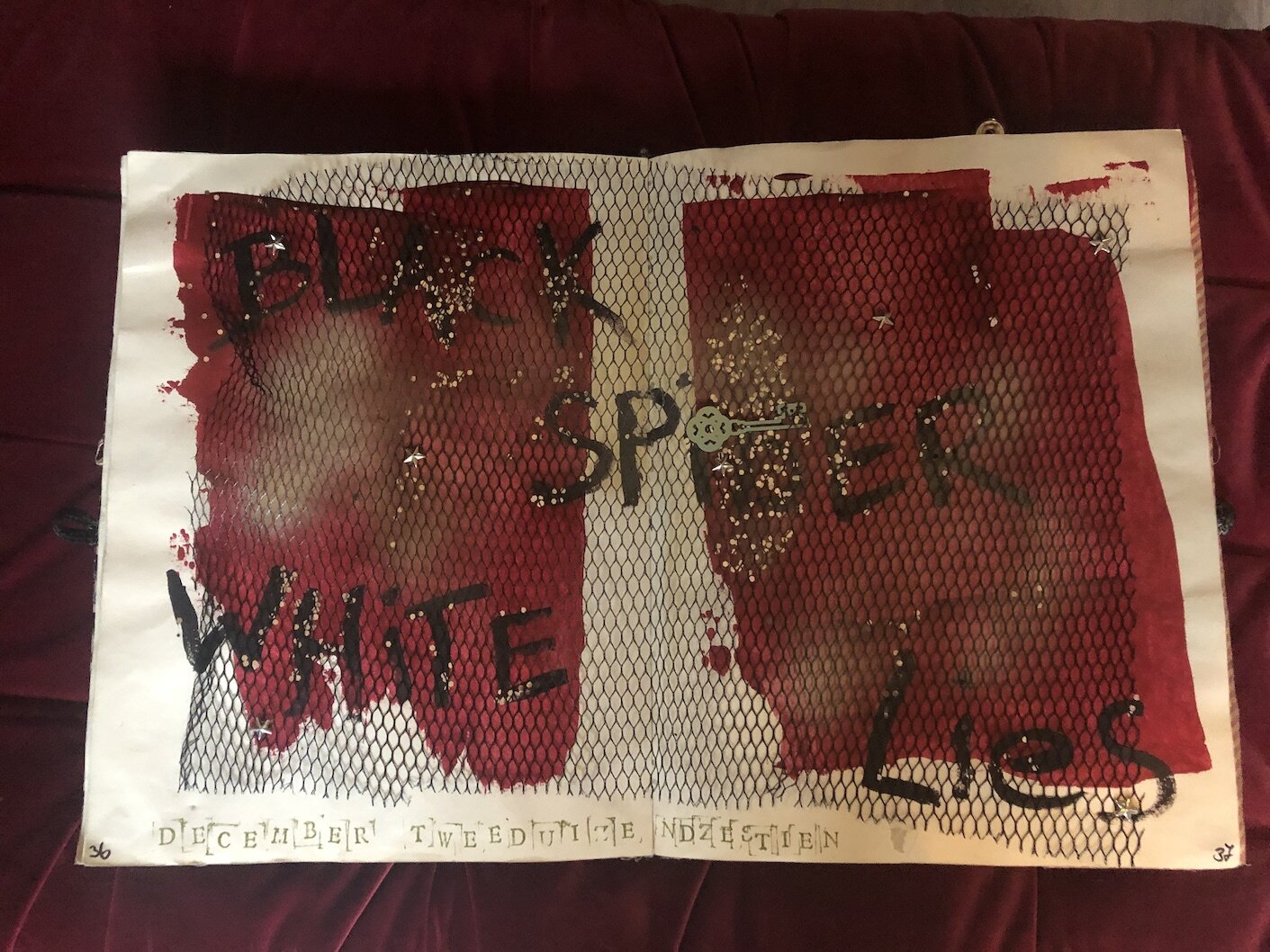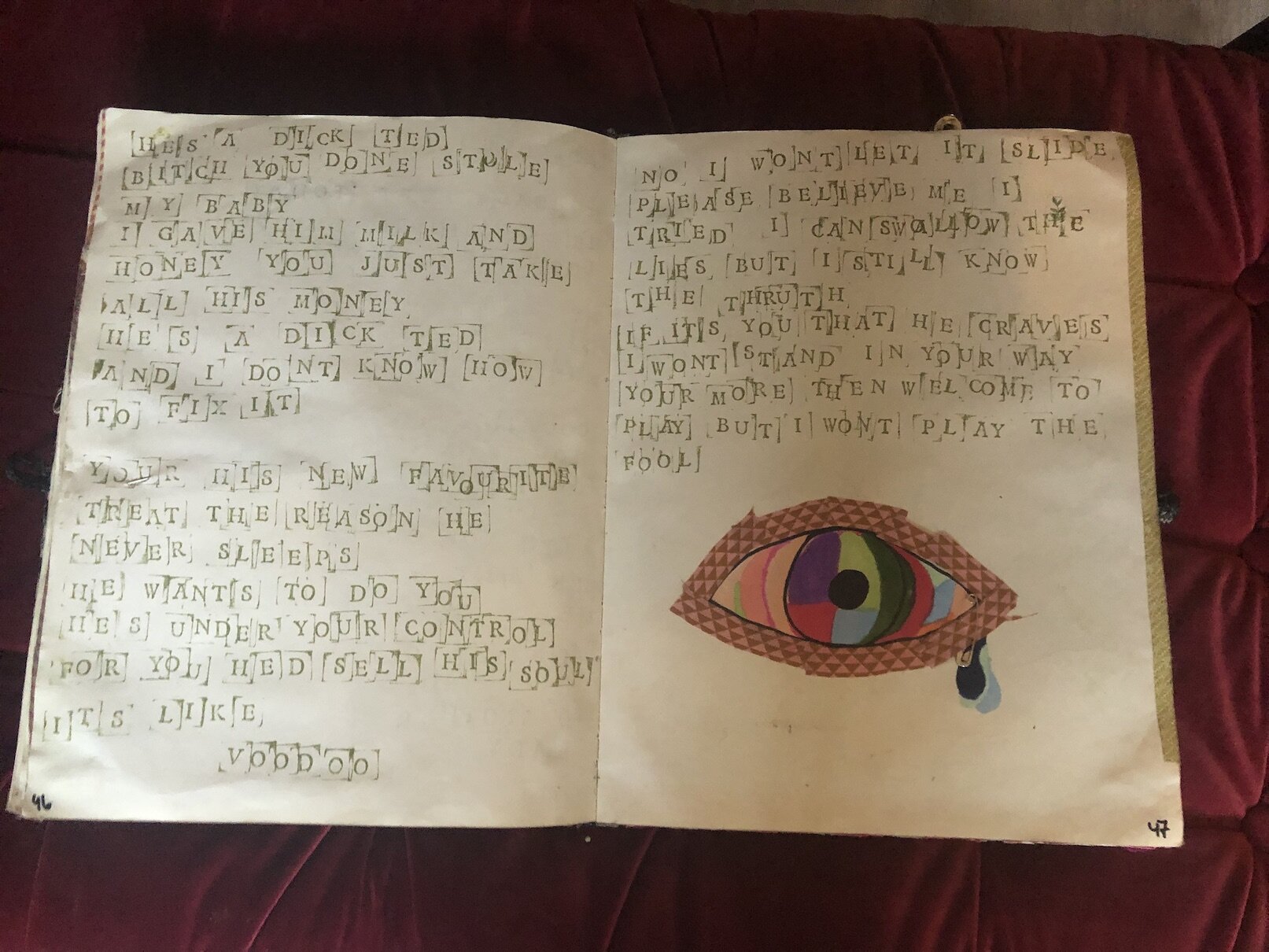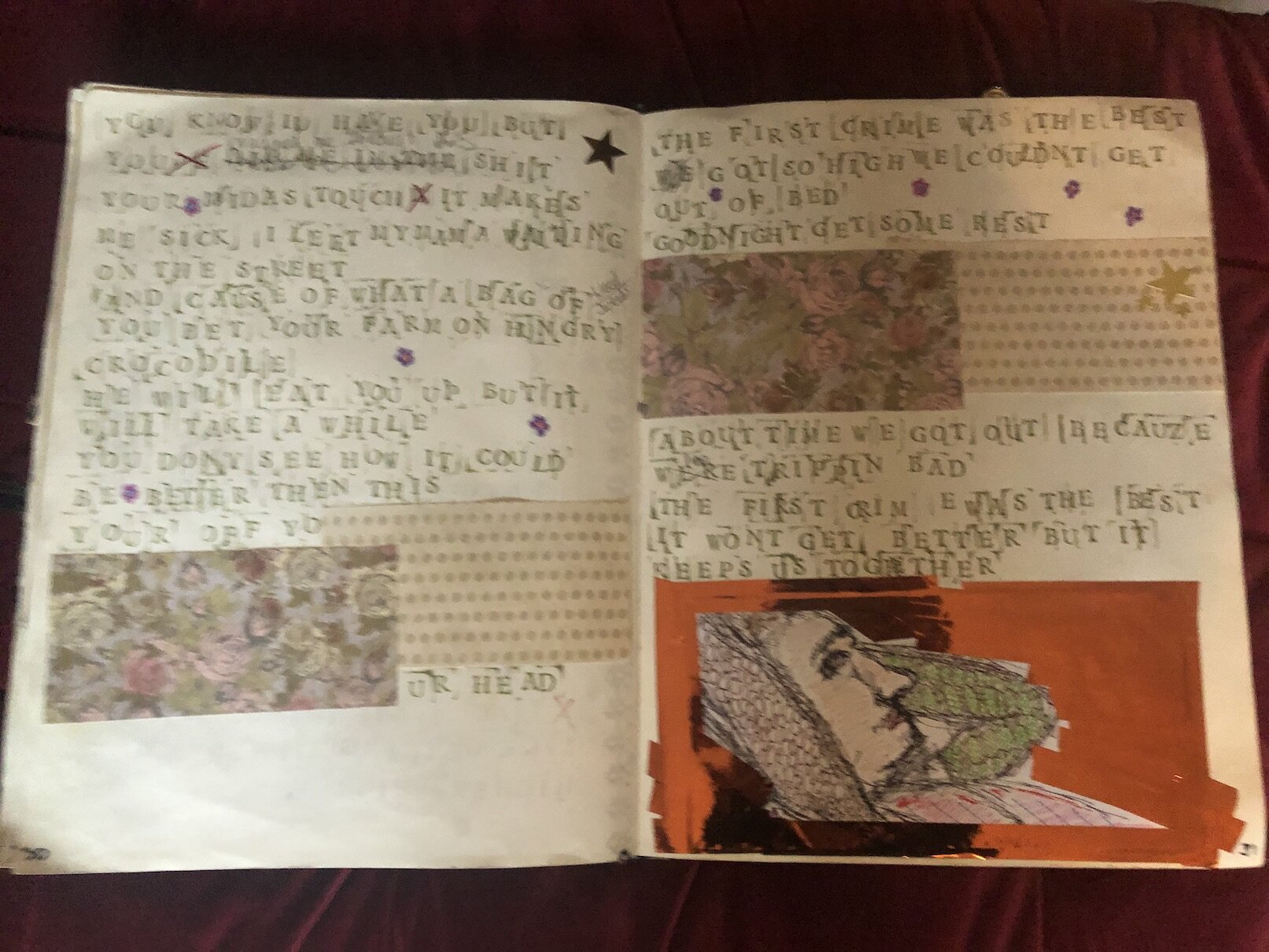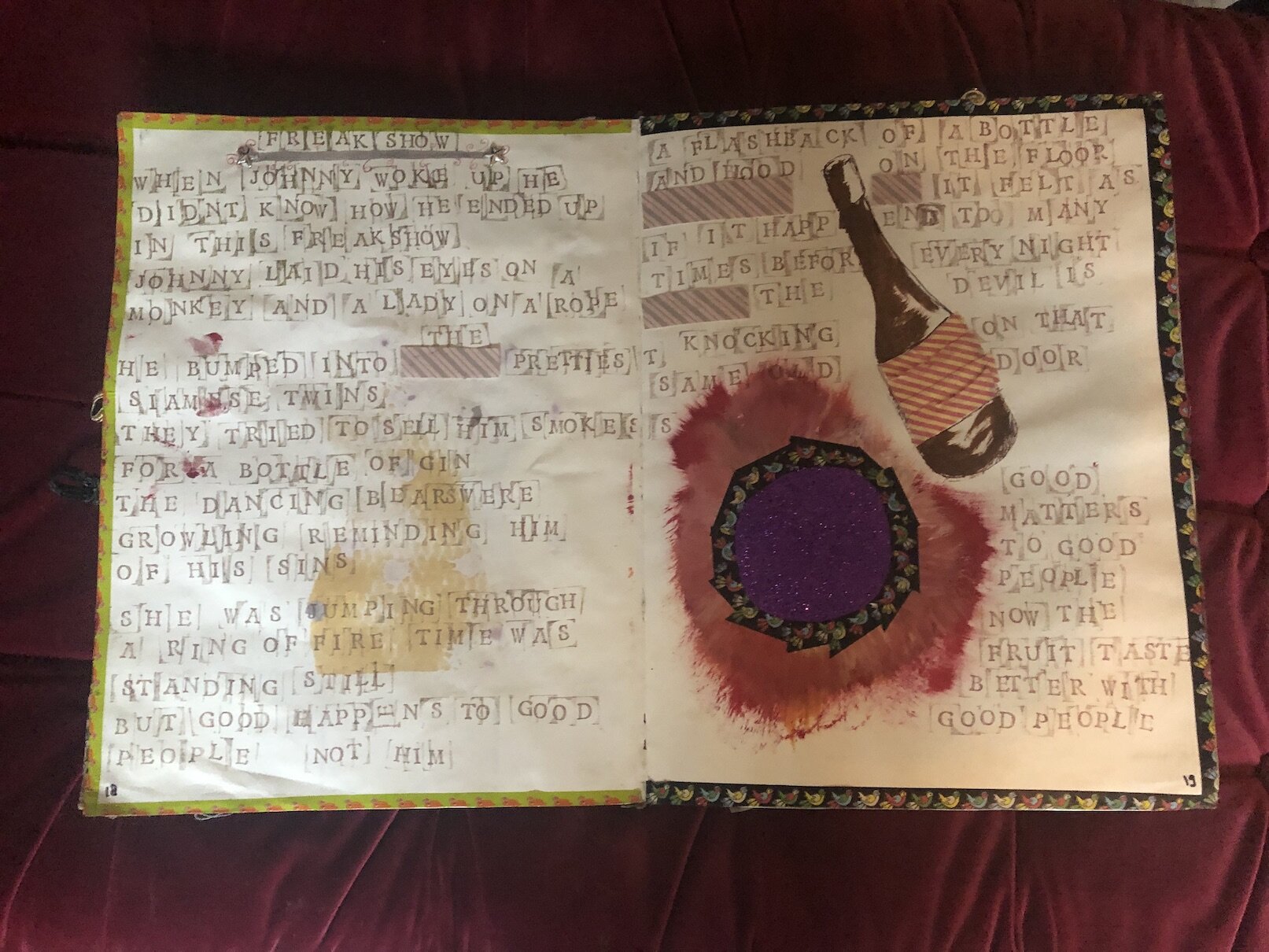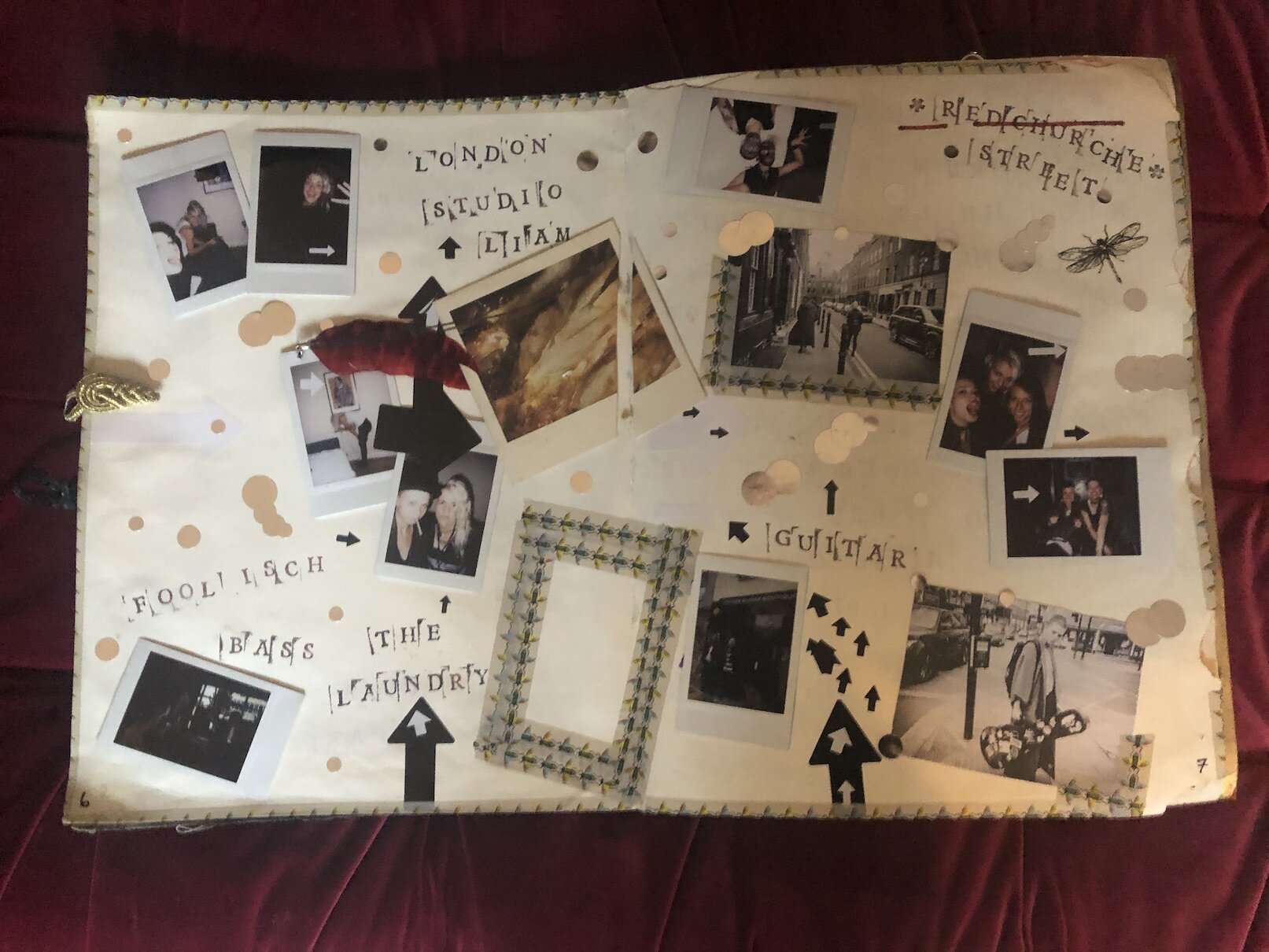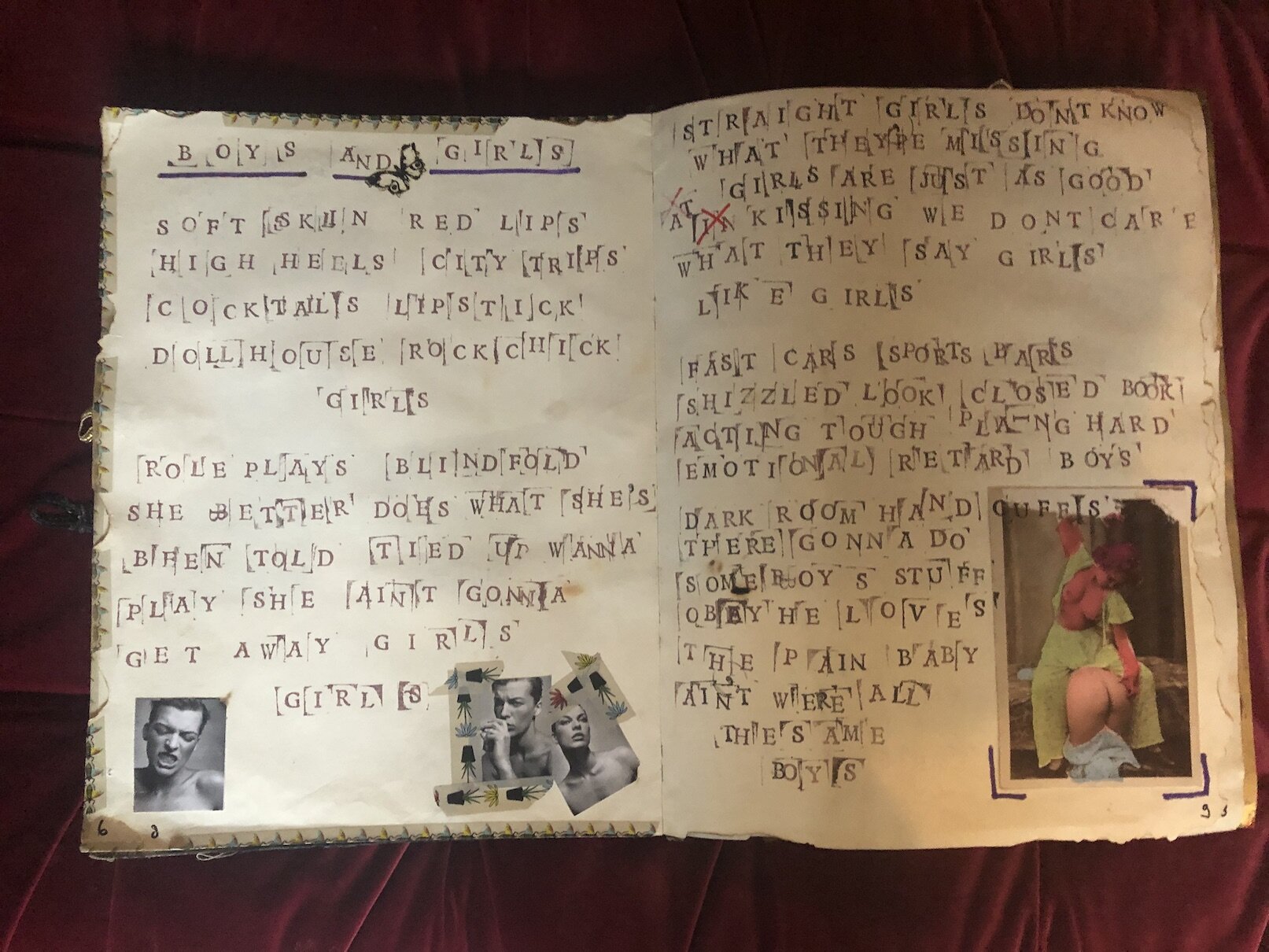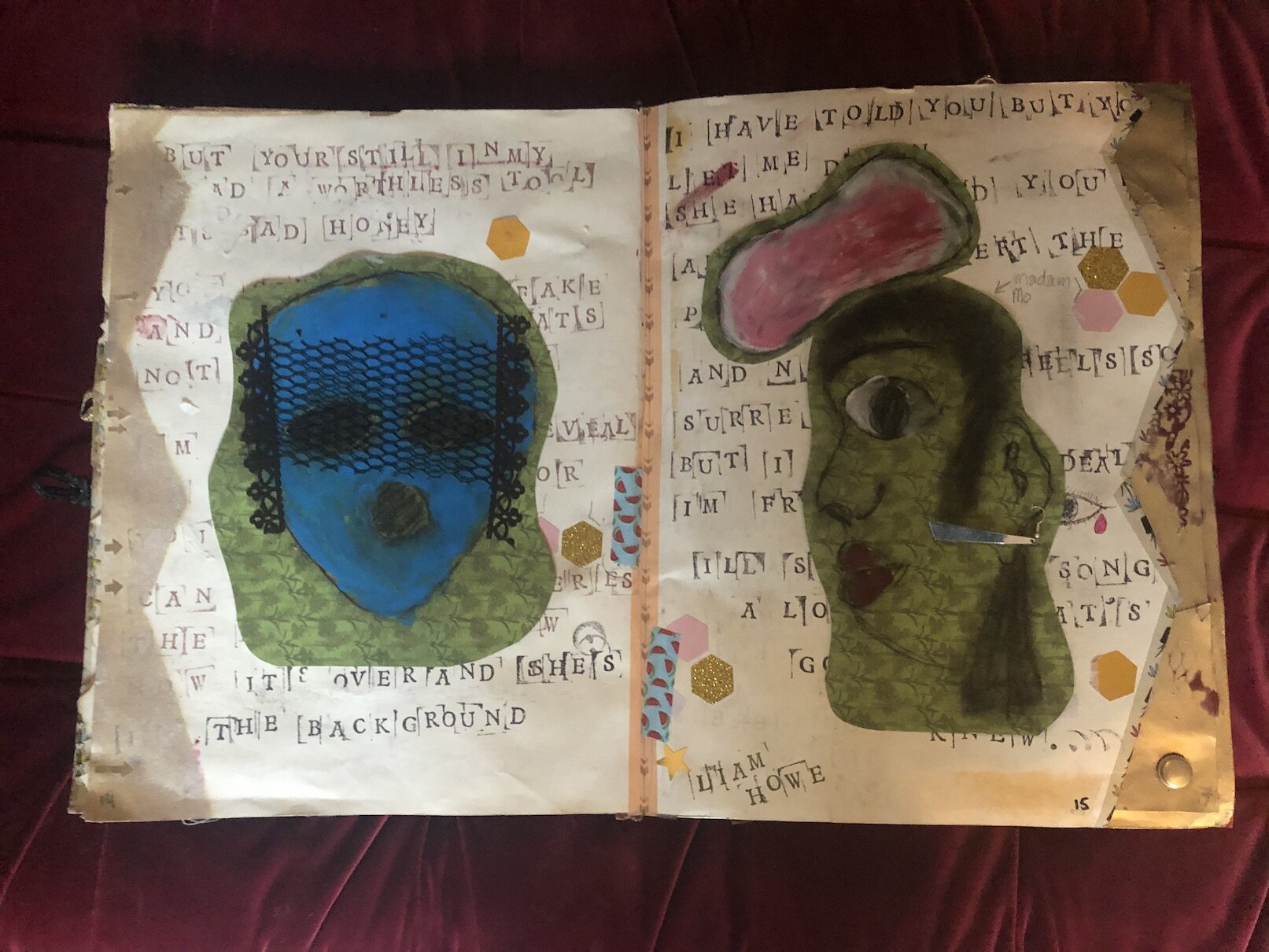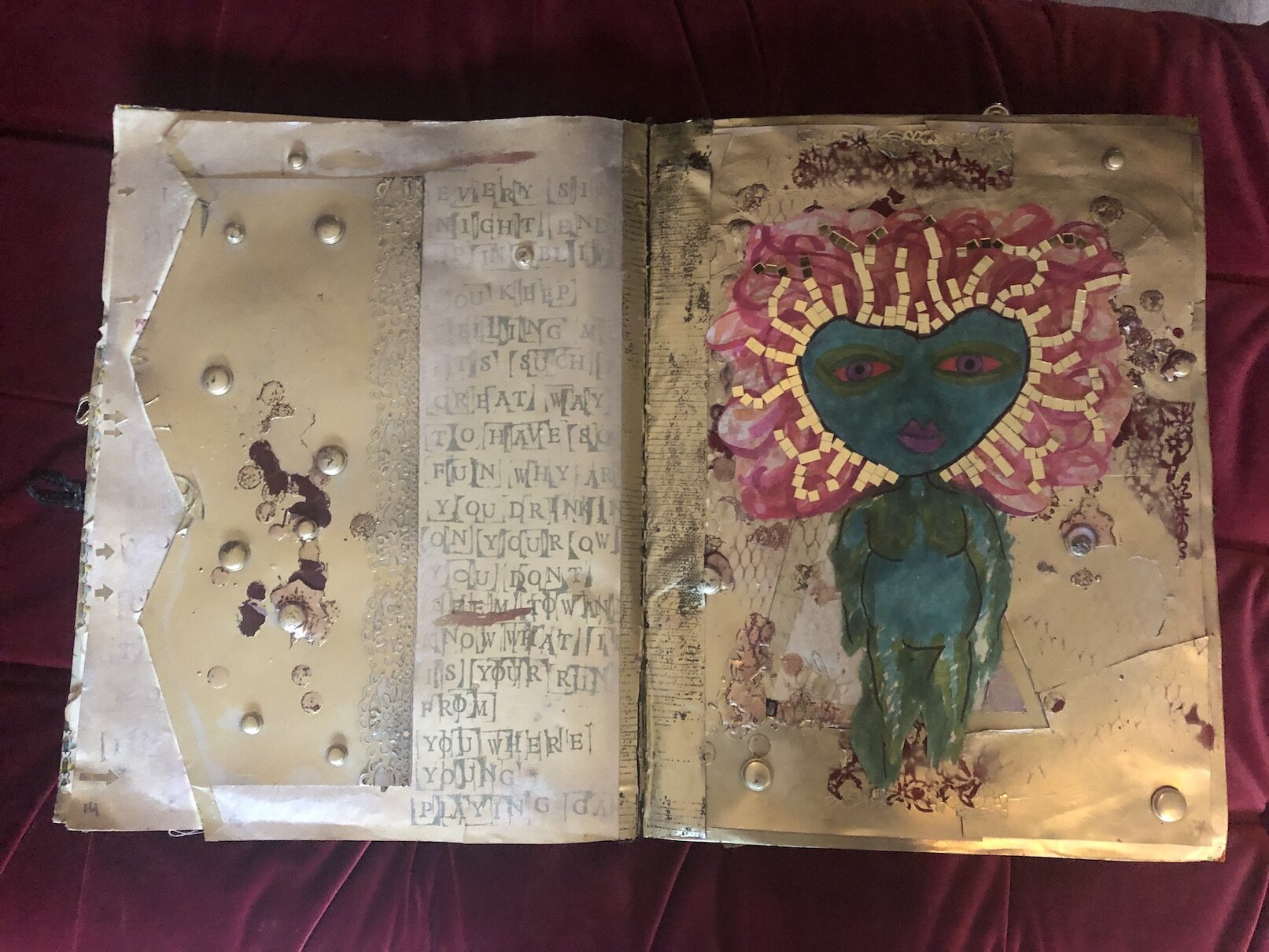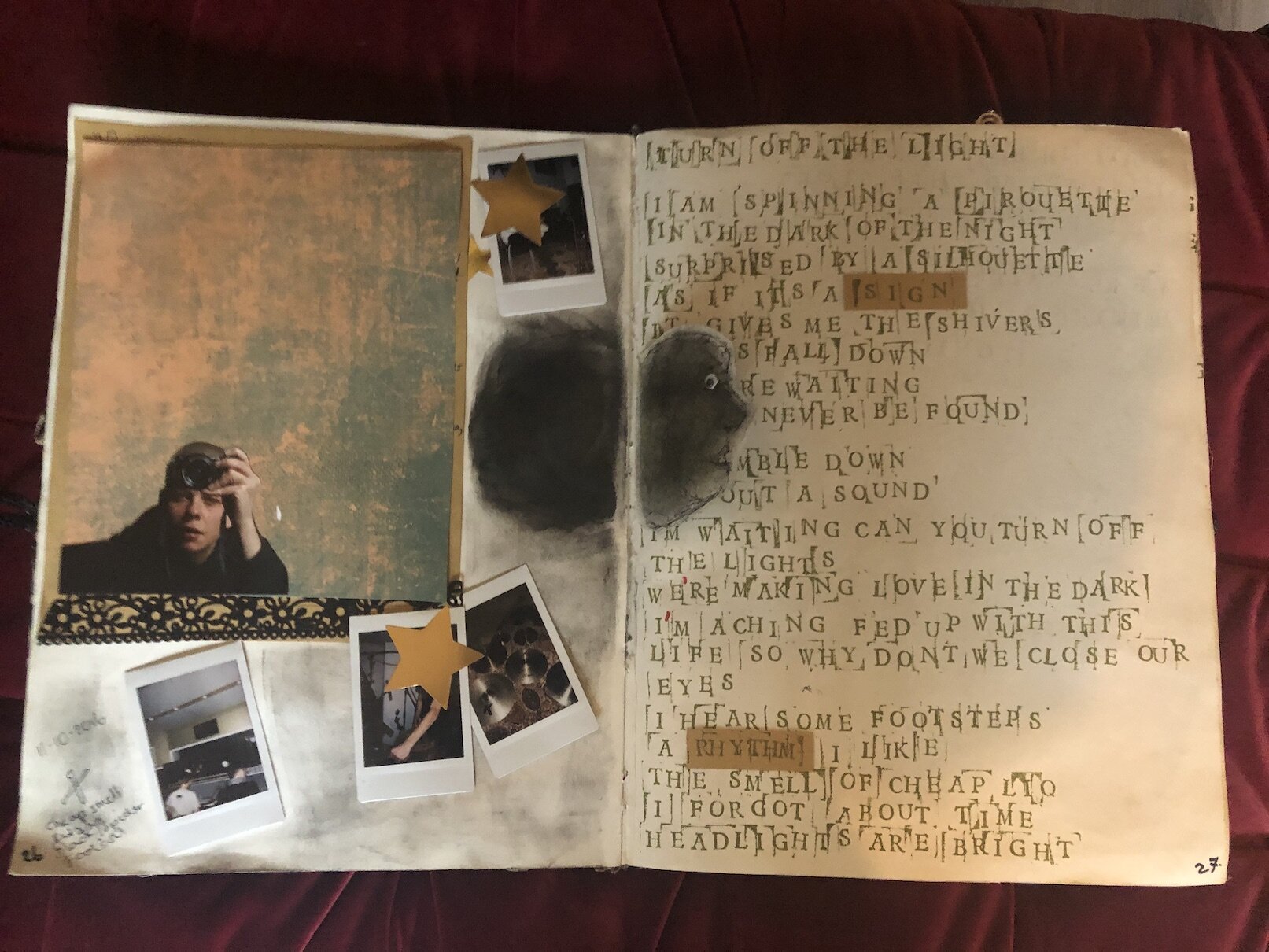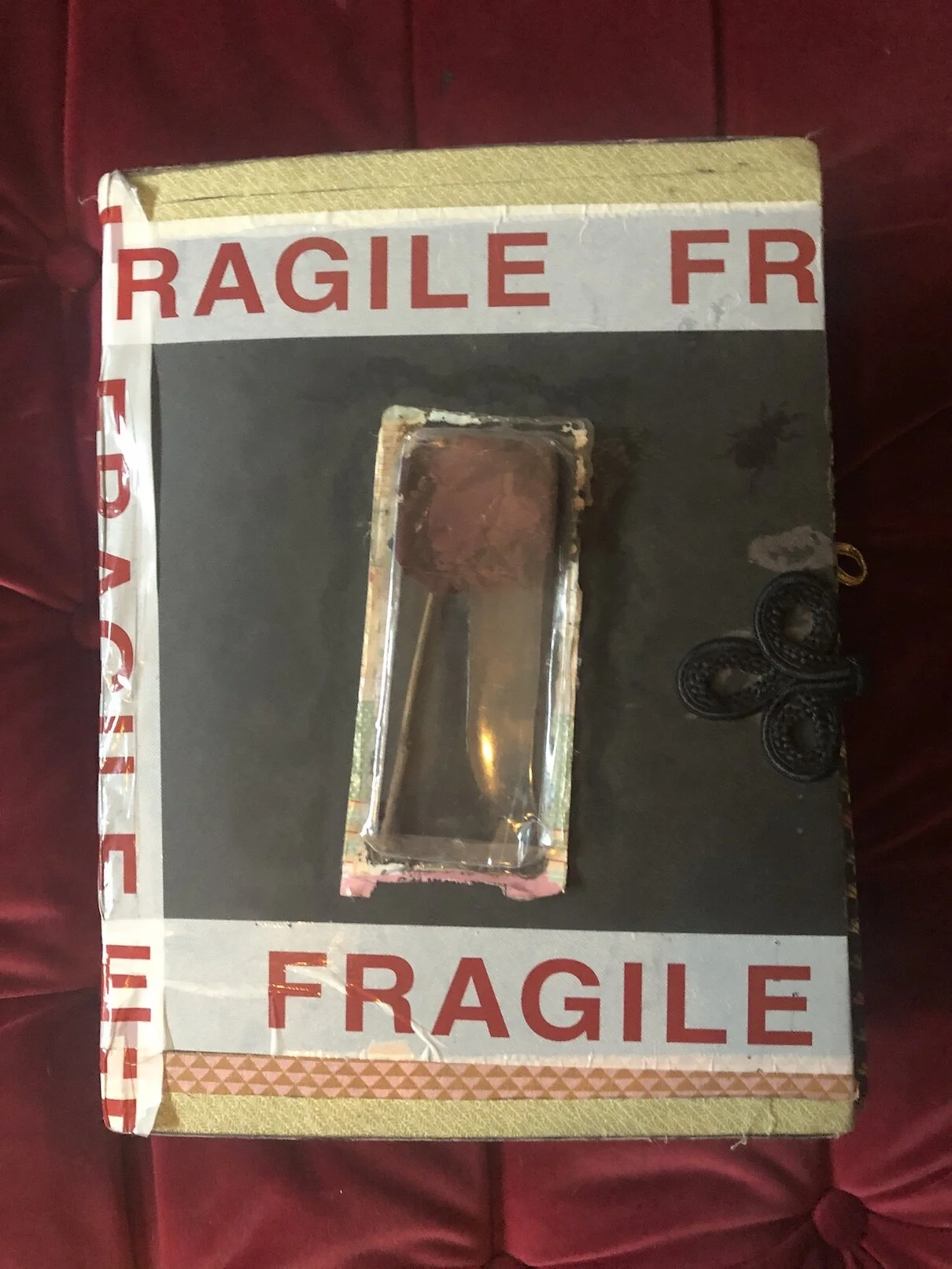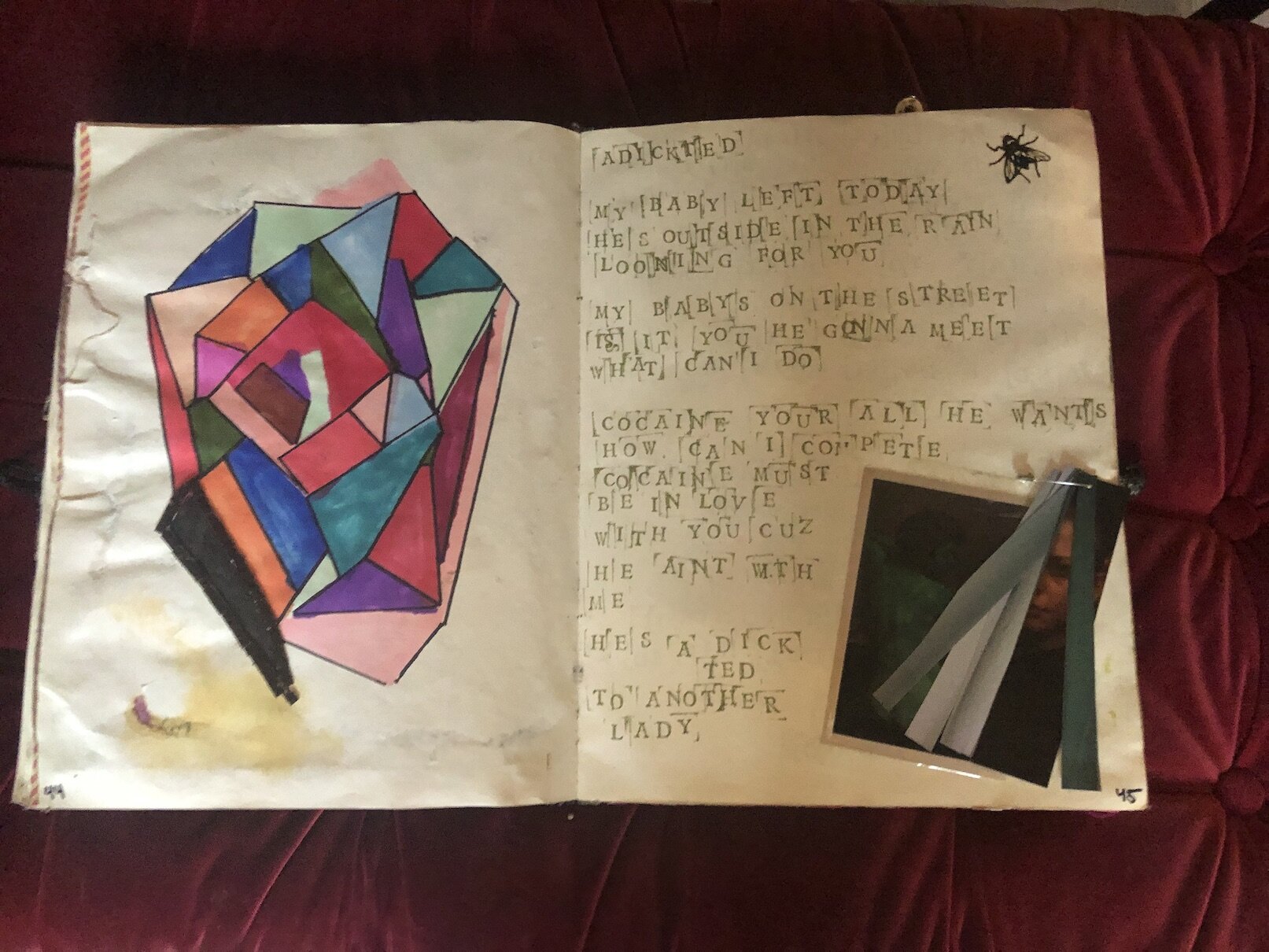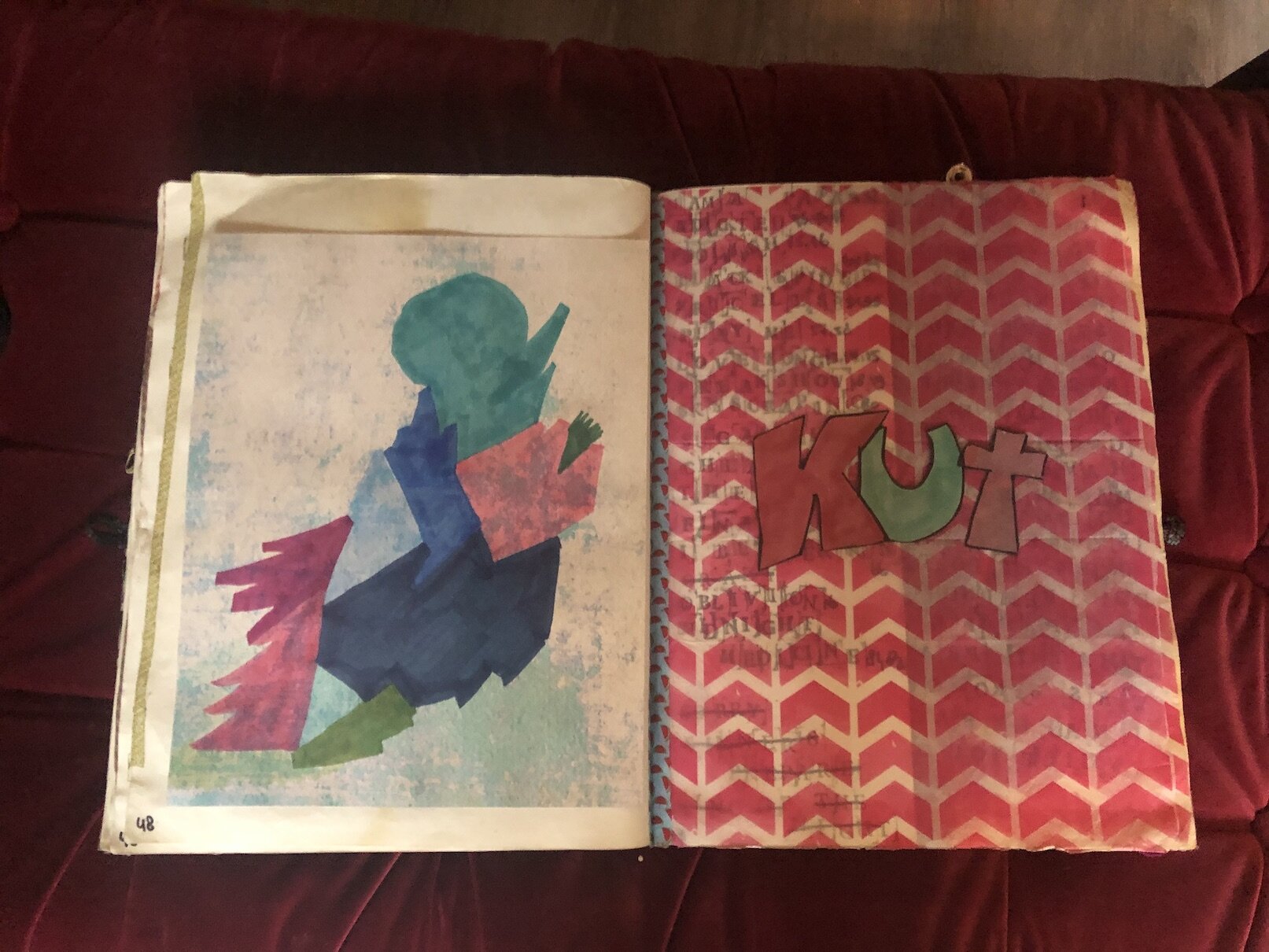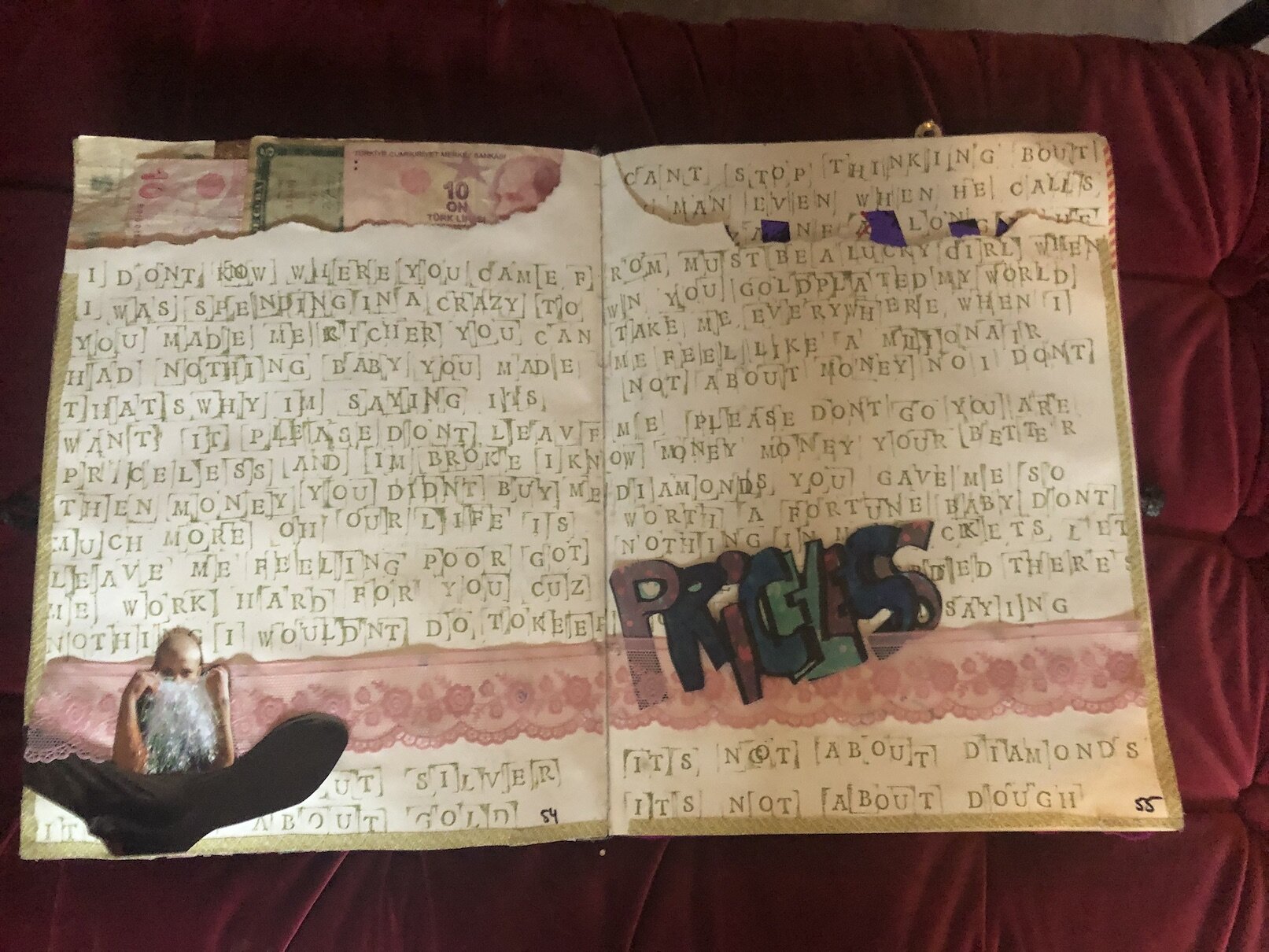Sharon Kovacs is a soul-inspired singer from Eindhoven, Netherlands. Her unique passion for musical poetry and unorthodox vocal style made her stand out while attending Eindhoven’s Rock City Institute. After graduating in 2013, she found international success when her debut single, “My Love” became a number one hit in Europe. Kovacs is very honest about the struggles and inner-demons that she continues to face and how they inspire her art. Such is apparent in her song “Shades of Black” which reached the top of the charts in the Netherlands and garnered over 60 million views on YouTube. Kovacs has a clutch of awards to her name and has performed high-profile sets at major festivals such as Glastonbury, Sziget, Pinkpop, and Rock Werchter.
THE CREATIVE PROCESS
Going back to your earliest songs, such as “My Love” or “The Devil You Know,” straight out of the gate you present these very strong images of predators, black widow spiders, powerful yet sometimes poisonous women, these very dark stories in your music. I thought one could almost call your music Praying Mantis Productions.
KOVACS
I like the dark. I don't like the darkness actually. Everybody has parts of darkness in themselves, and I feel that my creations have always come out of a dark place, from that sense of being alone, feeling alone, feeling misunderstood for being the person I am, too extravagant and sometimes too much for people. This is a way to help myself deal with it, to give it a place somewhere in my mind where it's okay.
THE CREATIVE PROCESS
In some ways it's interesting. I don't know because I write, but I don't write songs, but what other songwriters and musicians have told me is that sometimes when you have these moments, it's almost easier to sing about it. I don’t know if that’s true, but they said sometimes it’s easier to write a song about it.
KOVACS
Yes, it’s true. For me especially, talking can sometimes be a very difficult way to communicate exactly how I'm feeling, but when I'm singing, I can of course tell the story in words, but I also can convey additional emotion with it, which helps better translate what I want to say and how I feel. It's more clear. If I try to explain myself, I can never find the right words, but if I insert my emotions in a song, it's more natural and people understand better.
THE CREATIVE PROCESS
I think that so much of human behavior isn't really logical anyway, although you give logic to it in your lyrics, but it's quite beautiful how you can jump over quite long periods of time or people's behavior that was painful or confusing to you. I'm thinking maybe in more recent songs or going back to “Fool Like You” or “Mama and Papa,” where you can, in a few words, sketch out things that maybe you're still trying to understand.
KOVACS
Yes, and I think for me it is also another way to sometimes let my anger and other emotions show. For example, "Mama and Papa" is a song about the relationship with my father that I never had. I grew up not knowing about him, and three years ago he contacted me through Facebook. He claimed that he was a very religious man, and I don't mind, but for me it felt like he was just hiding behind his religion `and telling me what to do, to join this religion and stuff like that. At the time you try to remain polite, but there's still a lot of emotions inside of you, under the surface. Through music I can tell him what I feel and how I think about it. I can't really tell him in conversation, so I'd rather let him feel it.
THE CREATIVE PROCESS
You're not, as you say, exactly religious, but there's a kind of religion in spirituality. I always find it interesting how some people turn to religion because they feel out of control, or because it makes them really feel good, or maybe it’s a way for them to forgive themselves.
KOVACS
Yes, it’s interesting, and I also still think about it a lot. I don't think religion is bad and I understand people do it sometimes because they don't believe in themselves, and they need something else to believe in them or because they've grown up following that religion. Finding a family can also be a factor in religion, I think. I did that too when I started doing music. You want to create a new family around you with creative people.
THE CREATIVE PROCESS
I know that you went to Rock City Music School. I know that you also found your way in your voice, not just learning from your teachers. As I understand it, if I can speak about some of these things, you were kind of raised in foster home, so you didn't have access to some of the opportunities that a lot of people have. For example, music lessons. But you just found you have this raw talent and using that you found your way through?
KOVACS
Yes, I didn’t. But the funny thing was that when I was about 17 or 18, there was this woman in this foster home I lived at who brought me to a concert for the first time to see Pink, which I loved. She did a lot of things to make the children inspired by music. Later, using funds and money she received from organizations, she built a music group where children could make music. I think it's funny because it wasn't there when I went through that journey, but now there is a lot of music therapy related stuff at that foster home. I think people also saw that it helped a lot for children to be able to express themselves through art.
THE CREATIVE PROCESS
I think that you're an inspiring figure too. I believe there's a mural to you in your hometown, Eindhoven, and possibly, she says, “Gosh, there's other Sharon Kovacs out there who we’re missing.” Right?
KOVACS
Yes, I think so. And I think most of the creative people who are very talented can also be very troubled. They're the ones who actually need the additional help because they are mostly not in the situation to make music or, and it would help them.
THE CREATIVE PROCESS
I love dancing to your music. It’s quite unique, this voice you’ve got, the lyrics you write—you write the music and it’s very personal. But the reason I love dancing to it is I feel powerful in that moment and dangerous in a way that we often cannot be in life. It's like the woman in your songs has an attitude and she doesn't apologize.
KOVACS
I think it’s also the woman I am in normal life. I'm quite a strong character. I always have been. The moment I shaved my head, for example, I felt very powerful, very empowered. It's not really on purpose, but when I am in countries, for example, where women don't have their rights, I see how much I love my freedom and the way I am equal and all these things, and I can't help but translate that into my writing. It's funny because I've never really thought about it, but I think I'm quite free and free minded.
THE CREATIVE PROCESS
I believe “My Love” was the first song that you wrote. So you had that strength right from the beginning. Like how old were you when you wrote “My Love?”
KOVACS
When I wrote "My Love," there were actually two songs, and I wrote them when I graduated music school. It was my final project. That was actually the moment when I was about to start my career, make an album. At the time I was like, "okay, now I have to go for it. I have to leave everything behind which is holding me back.” And that was the moment that I did.
THE CREATIVE PROCESS
I wanted to discuss the lyrics of “My Love” and where they came from. Because these lyrics are very powerful for a young woman just out of music school. I would’ve thought those were written by someone on the other side of career. So where did those come from?
KOVACS
The idea and emotion behind it came from how when I was at school, I partied a lot and didn’t really put in a lot of effort. But when I got to this point, when I started my first album, there was this producer, Oscar Holleman who found me and invested a lot of time in me. It would be my first album, and for me it was a wake-up call, as if to say “Okay Sharon, now you have to do it. You need to leave everything behind and you’re going to do it for your love for your music.” “My love” in the song is symbolic of my music.
THE CREATIVE PROCESS
It's interesting because I didn't know it came from your music or that there's all these different layers of interpretation. I’m always thinking that they’re love stories, a romantic story gone wrong, a ruined relationship and then the person singing the character coming back on the other side of the darkness. For some reason I thought that was a romantic relationship, but then you say that was also about your father.
KOVACS
I have to tell you this story, because it’s very special. When I wrote this song, I actually didn't know who my father was. But about two days after I wrote this song, and at the time nobody had heard it, was the moment my father first contacted me. It was actually the first time I really talked about it, which is really special. And it was also as though he had heard that I was thinking about him, and he contacted me.
THE CREATIVE PROCESS
I think it's possible. I think it does happen. Has that happened on any other occasions? That’s a really dramatic story, but do you pick up on things like that often?
KOVACS
Yes, I think so. I'm writing my new album now. My grandparents have always avoided my dad on my behalf because they took care of me when I was young. About three weeks ago I was writing a song about grandparents, getting older and how the world is getting smaller and how you need to let go at one point. Then, the day after I heard that my grandfather got cancer. The song for me became almost like a comfort song. It seemed to say that it will be okay, this is just how life is.
THE CREATIVE PROCESS
It's interesting how art can sometimes be that mirror. You're able to pick up on things that are out there or connect with your father even though you haven't been in touch.
KOVACS
Music can be almost like an extra sense. Music always comes without thinking, as though intended by nature. I think that's why you can sometimes pick up on things before you've even heard about it. I don't know. It's often little things that you insert into a song, and you don't know quite know why you said it until all of a sudden, a few days after, it makes complete sense.
THE CREATIVE PROCESS
Speaking about the creative process and where things come from, you're singing about some pretty powerful singers, Ella Fitzgerald, Bessy Smith.
KOVACS
I think a major part of the songwriting process is also about just finding other music, getting inspired, and continuing the process, keeping going. I'm also singing about musicians and the band, the whole approach. How you're going to find a group of people and fit together and how you're going to keep them together.
THE CREATIVE PROCESS
You mentioned Oscar Holleman, and you had a very strong group of musicians that had been with you from the beginning and produced amazing music. You've had an evolution, but I would like to talk about the time when you were recording your first album, because you it did it in Cuba. I was wondering how having all that around you influenced the writing and recording process.
KOVACS
Cuba was amazing. We went to Cuba because of the way that the music there is such a part of their lives. It's so much ingrained in how they go through the day. Everywhere there's music, and in a way, for me, that's also how I see music. It's a part of me and it belongs to me. Also, the musicians are amazing over there because they have nothing else to do the whole time but making music and playing everywhere.
We didn't record everything over there because a lot of the equipment was broken or needed to be replaced, so almost nothing worked, and we had to improvise. We did record a lot, but we didn't record as much as we wanted. But still as when come home, you take the vibes home with you and put them on the record.
I didn't really fit into what they were trying to teach at school about music. There was a vocal technique they used at school, teaching you different ways to use your voice, for example in a clean way, without much air. Eventually, I checked my vocal chords and learned they don't close the way they normally would. So that's probably why my voice sounds so warm and low. It also means that I'm not able to sing very high and very cleanly. I think some people at the school were afraid of that because they didn't know how to deal with it. At one point they decided to let me do my own thing. So that was how I was able to finish the album, because they gave me a lot of time to work on it by myself.
THE CREATIVE PROCESS
I think it’s interesting, because in all the art forms, you can be almost too trained sometimes, but it’s hard to teach personality. It must be frustrating for people who have a perfect range but can’t be unique.
KOVACS
In my case, it's more emotion which controls the way I sing. If I feel happy or if I feel sad, my voice starts to sound differently. It's not connected with a technique or anything like that, it's connected with emotion.
THE CREATIVE PROCESS
You write in this very cinematic way, and the images that you evoke are very powerful. When you’re writing and singing, what are you visualizing beyond the audience?
KOVACS
When writing or singing, I'm often visualizing the situations, the emotions. I try to find a way to put my emotions and story in a song, try to make it as clear as I can and find syllables that have that same emotion, and which can be understood by people. Sometimes emotion is a very complex thing which only you can feel, but for me, it's always interesting to make others share in this emotion. I always create in pictures. A song is actually like a painting, and I think it's always very important to have a sense of visualization while writing.
The song "Addicted" from my second album was a tough song for me to write. It was it also the song which took the most time to develop into the song that it is now. It's about a very toxic relationship. I wrote it about someone who was a very important person for me in my life for a little while. We broke up and it was very weird breakup. For me, this song was a way to cope, and also a make him aware of how I was feeling. I wrote it as a wakeup call, a way to say, "get your shit together."
When I wrote it, it was very scary to release that because in it, it seems as though I'm actually talking shit about somebody. Actually though, it was never my intention to talk bad about him, but more to make him aware. It's a very interesting song. We still sometimes speak and he's doing better, which is great. But I think the song is also something that a lot of people can find themselves in and relate to. Many of my friends and many other people are in similar situations.
Throughout our entire relationship, the song gradually evolved. Near the beginning it was a different situation because I was not so aware of the drug abuse, but I was aware that something was changing in our relationship. All throughout our relationship, I rewrote the song until we actually broke up and he had a new girlfriend. And I remember that I was also angry because I was like, "hello, I'm left here with the shit, and now you're gone." So, I was also very upset of course.
THE CREATIVE PROCESS
In way, your songwriting is a kind of writing diaries. Do you also keep a diary? I'm wondering about your writing process, how you get the lyrics out of your head and on the page.
KOVACS
I don’t have a diary, but I have a big book. It's my story, my lyric book, and it's full of Polaroids, but also all the poems and lyrics I have written. I also sometimes make paintings in it, or I cut out articles and put them in the book. It's like my diary, but it's also quite visual.
THE CREATIVE PROCESS
I know you travel a lot and perform with different orchestras in different countries and festivals, so I was wondering how the meaning of a song can lend itself to other meanings depending on the different places you perform at.
KOVACS
It’s funny, because when "My Love" came out it was a big, big success in Greece in the beginning. That was because at the time there was the recession, and the song was about how there would be no more diamond rings and all that.
THE CREATIVE PROCESS
Do you ever meet fans who have an interpretation of your song that is entirely different from what you had meant to communicate?
KOVACS
No, I don’t think so. I think everybody finds the meaning of a song from the same basic emotion, just applied to different situations.
THE CREATIVE PROCESS
I think some people could go into the melancholy of it, but I found that you definitely take us to these dark places, but then you show us the way out. Now we’re looking forward to your next album. Are you still recording in London?
KOVACS
No, actually, but I do still write with one guy in England. His name is Jonathan. With this new album, I'm also trying different, new things now and trying to be even more honest in my writing.
THE CREATIVE PROCESS
Well, it’s very honest already, so I do wonder how you can be even more honest?
KOVACS
I'm able to write even more honestly now because I think there still remains this darkness for a reason. In the new songs I focus on dealing with situations while still coping with this darkness. This is an example of how music brings me closer to where I need to be. I need to really face the demons that made and contributed to the darkness in the first place.
THE CREATIVE PROCESS
You were talking about “Mom and Pop,” and I just would like to just talk about some of those lyrics. Were those things that you didn't say to your mother?
KOVACS
Yes. When I was young my mom never told me a lot about my dad because I think she also knew that he was a very unstable person, and I was very unstable in my childhood. So, she never told me a lot about him and I was always very angry towards her about it. But later after I grew up, and also these last four years, we started to really talk about these things. This song about my mom is also a very healing song. It communicates the idea that, "Mama, I now know why you did it and it's okay. I understand. " Many of those things I say, many of the questions I pose such as, "Do I look like him? Do I move my face like him?" are things I would never have asked her, you know? Because we never talked about it.
But there’s eventually a point where you grow up and it's almost as though there's a demon inside of you. There's something you need to find out because you are walking up against these barriers all the time. These questions are almost like insecurities about yourself.
THE CREATIVE PROCESS
Do you ask yourself where you got your courage from then? Because it sounds as though what you’ve done is different from what your parents would’ve done or the way your grandparents would have acted.
KOVACS
I don't know where I get the courage from to do things differently from what my parents or even grandparents would have done. Making music creates a platform for me to deal with these things and to even share and inspire other people. I think that thought is enough for me to just do it.
Songwriting Journal Courtesy of Kovacs
This interview was conducted by Mia Funk with the participation of collaborating universities and students. Associate Interviews Producer on this podcast was Konner Kienzle. Digital Media Coordinator is Hannah Story Brown.
Mia Funk is an artist, interviewer and founder of The Creative Process.




